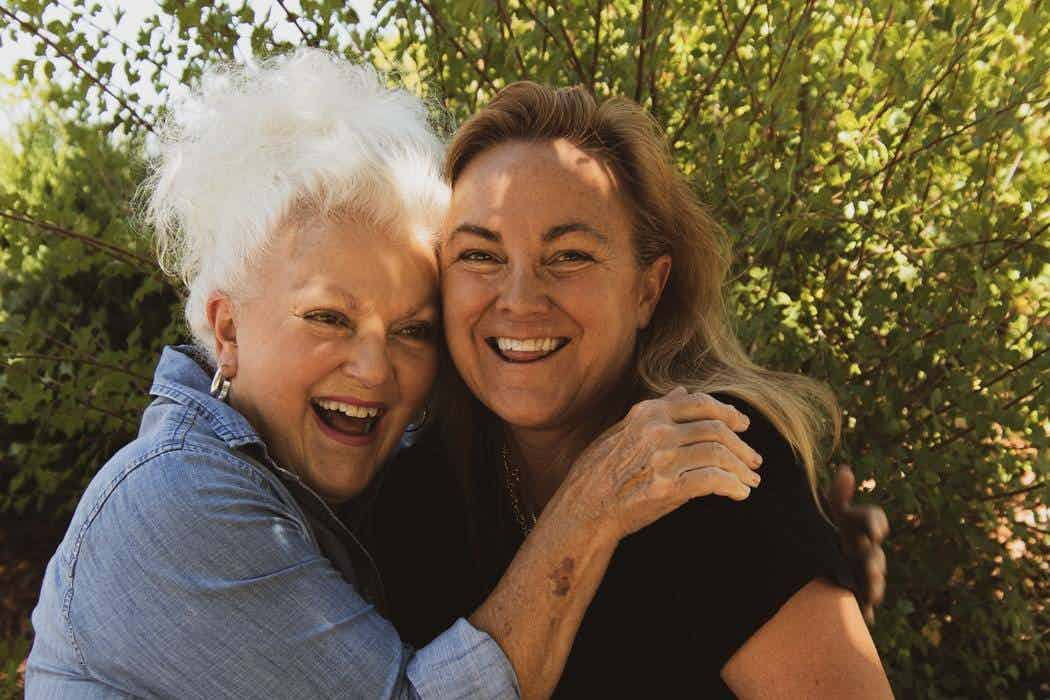Friendships come naturally with the right people, don't they? Like anyone else, your friends have needs they look to have met by the people around them. And as with any relationship, there are always things we can do to improve the relationship.
Below are some ideas for how to be a better friend.
1. Listen
Are you always waiting for your turn to speak? Or maybe judging what the other person is saying? Or perhaps looking for solutions before first feeling into what's being said?
All of that, as Sandy Gerber can tell you, will make you a poorer listener. That's because you're doing something other than listening. People long to be heard and understood. Truly understood. If your mind is busy with something else while listening, you aren't truly there for your friend.
To ensure the person you're speaking with understands that you are listening, ask questions about what's been said. Also, check that you understood it correctly by summing it up: "So if I understand you correctly, you feel neglected because this happened?"
Lastly, if they're talking about a problem, try to find out if they're looking for a hug and encouraging pat on the back, or if they want solutions, ideas and suggestions from you. Many times people just want support, not answers.
Life Coach Nick Hatter endorsed this point, telling Age Times: "Just listen.
"Oftentimes, when a friend is down and sharing a problem, it can be so tempting to give advice or feedback. But honestly, what some people want and need is just to be heard. In fact, giving unsolicited advice can make people feel unheard - or even criticised. So next time a friend is feeling down, just listen, and acknowledge what they’ve said, perhaps by saying, 'that sounds really difficult, I’m so sorry to hear that you’re going through this…I’m here for you.' By saying this, you will make them feel validated and heard - and they might even say 'Thank you, you’re such a good listener!'
"Even as a professional life coach, I don’t always give advice or feedback. Especially with non-clients! Sometimes I just listen."
2. Check-in
Just checking in to say hello and see how someone's doing can mean the world. This is especially true if they're feeling isolated or down that particular day. Send a voice note, or give them a quick call ever so often.
3. Make a point to meet up
When we are busy, we often sacrifice time with friends to deal with all the other stuff. However, a quick coffee or twenty-minute walk around the park before work is not impossible to fit in. The main problem is usually trying to catch up for hours at a time. Adjust social meetings so they work for you and your friend's schedule, but don't cut them out.
Meeting face to face is special, especially in these times. So make a plan for it. And if you do have the time for it, something like a country walk or a picnic in the park can be amazing.
4. Send a letter
If you and your friend enjoy letters, try communicating the old fashioned way. While some will undoubtedly hate it, as they detest writing, many find that they can express themselves better with pen and paper. And who doesn't miss getting real letters in the mail?
Find out if sending letters would be a fun exercise for you and your friend. You can also send small gifts that fit in the mail, the kind that costs less than ten pounds. Having that kind of relationship where you constantly surprise one another can be a lot of fun.
5. Focus on the positive
Whether you're looking to uplift your friend, or yourself, focusing on what's working in your lives is usually the best way to go. A lot of people get caught up in troubleshooting, or simply discussing problems, or even gossip. But to feel good, the easiest way is to talk about what's going well and what more you can do to create other great things.
This will improve your friendship because you'll bond over things that make you happy.
Zoe Thompson from Bristol-based Phoenix Life and Wellbeing Coaching told Age Times: "How do you check in and ask your friends how they are? Changing the question can help shape the conversation. Try changing ‘How are you?’ to ‘Tell me about what is good for you right now’ or ‘So, what's good in your world?’
"A change of questions can shift the direction of the conversation."
6. Compliment them
Again, by focusing on someone's positive sides, you can help uplift them. People who see themselves in a good light tend to act on that, while people who see themselves in a negative light tend to act on that.
If you make someone feel good, they'll enjoy spending time with you more. Of course, compliments have to be genuine. Flattery is cheap, and people see through it right away.
Hatter told us: "Validate your friend.
"Actively tell your friend what you appreciate about them, and why. When you explain why, it makes your compliment that much more believable. Remember to actively highlight your friend’s good qualities.
"Sometimes we need to hear from a friend that we are OK - especially after a setback or a rejection.
"As an exercise, ask your friend why they’re friends with you, and likewise, tell them why you’re friends with them. You’ll both get a boost from doing this!"
7. Read books about relationships
Reading books about relationships can make you a better friend. These books teach you about how people interact, communicate, and understand emotions, which can help you connect with others on a deeper level. Whether it's learning to resolve conflicts, listen better, or grasp different personalities, relationship books offer practical advice for building stronger friendships.
So, think about adding some relationship-focused books to your reading list if you want to become a more caring and supportive friend. For example, "How to Win Friends and Influence People" by Dale Carnegie is a timeless classic in the field of interpersonal relationships, this book provides practical advice on improving communication skills, building rapport, and creating positive interactions with people.
8. Give your friends space
Not everyone has a lot of time to share with friends. They may be a single parent or have a lot of commitments, such as doing community work. That doesn't mean they don't care. It merely means they have little time. By showing you support their life at large and are OK to see them when possible, you allow them to be who they are!
Likewise, some people enjoy sending messages every day, while others don't or don't have the time for it. Adapt.
In short, please don't assume that because someone doesn't have much time, they don't care about you. Ask them openly about how they feel about staying in touch.
On the other hand, if someone's always cancelling or never replying to messages, it might be time for a different conversation. Ask if they are busy or if they don't see the friendship going anywhere?
9. Be supportive, but don't get involved in their drama
Some people are inclined to get involved in drama. Their lives are always two steps away from falling apart. Often they want to discuss that with their friends, maybe even get them involved.
If you feel someone is trying to suck you into their drama, don't play along. You don't have to get dragged down by their "stuff." Instead, support them by letting them know what you think they're great at and what's currently working in their lives. You can't fix their life for them, nor should you spend your life listening to them harping on about their problems. It won't help them. In fact, if you get dragged into it, chances are it will end up hurting you both. Support them to help them resolve their drama themselves.
10. Accept them
Yes, if they quit smoking, stopped drinking, joined a gym, read some personal development books, and dumped their good for nothing partner or dead-end job, they'd be better off. But it's their life. You can't control it, nor should you try. You can mention what you'd do, or things you've come across that have helped you, but that's it. Remember, don't drain your energy contemplating their issues. Instead, support them in doing great stuff.
Remember, you're not their coach; you're their friend. You support them; you don't tell them what to do beyond friendly suggestions. On the flip side, if they become too toxic to spend time with, then let them know.






